Published Sep 28, 2017
Rick Berman on TNG's 30th Anniversary
Rick Berman on TNG's 30th Anniversary
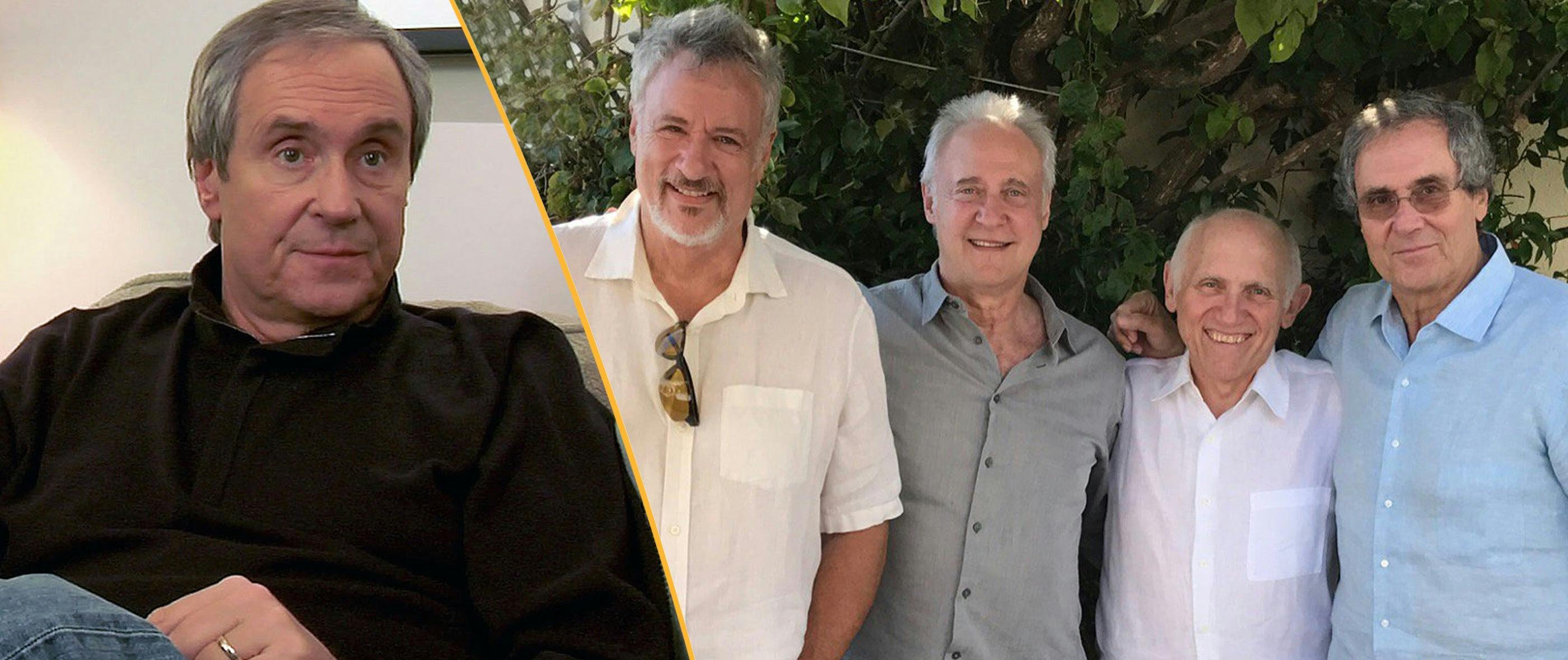
Star Trek: The Next Generation celebrates its 30th anniversary today, and to mark the occasion, StarTrek.com reached out to Rick Berman. He, of course, worked with Gene Roddenberry to launch the show and then ran TNG when Roddenberry pulled back as his health faded. Berman went on to executive produce the TNG features and to executive produce and co-create Deep Space Nine, Voyager and Enterprise. Quite appropriately, Berman gave us 30 minutes of his time for a rare interview last week. We’re breaking the conversation in half, so be sure to visit StarTrek.com again tomorrow to read part two.
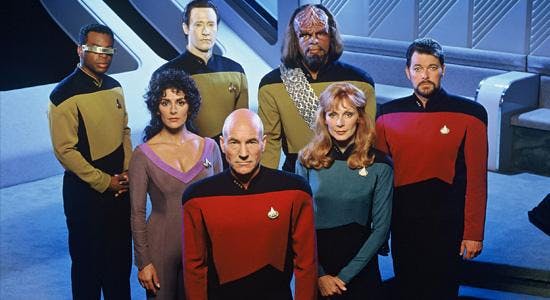
Here we are, talking about the 30th anniversary of TNG…
It's all a little mind-boggling. For me, it's really almost 31 because I got involved in 1986, when I first hooked up with Gene. It's been like 31 years; it's scary how quickly time goes.
Go back to the buildup to the show's debut. What was the mood on the set, in the production offices, as the premiere approached?
We had three strikes against us. We were a science-fiction show, which was not at all popular at that time. We were a sequel to another TV show, which had never been successful at the time. We were going to be syndicated, as opposed to on a network, which was unheard of unless you were a cooking show or something. So, everybody was a little nervous whether this was going to work as a syndicated sequel to a sci-fi show. That was one side of the coin. The other side of the coin was we had a product that we were extremely pleased with. Gene, myself, Bob Justman, all the people who were involved with the show at that time felt that we had a pretty terrific cast and a great pilot. I think everybody was guardedly optimistic, and I was amongst them.
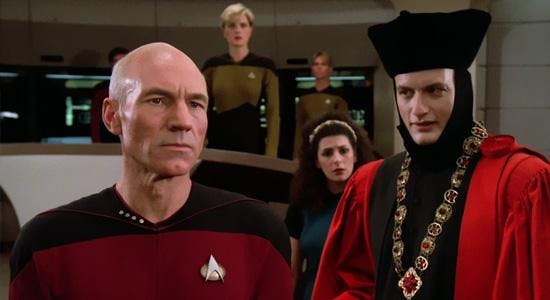
What do you recall most about getting "Encounter at Farpoint" ready to air? Was it VFX? Was it editing to graft the two disparate story halves into one?
The Farpoint station and the whole story about running into Q and Q's putting us on trial, those two stories, they were written at different times, but they had been well melded together by the time we were shooting. That was not a problem at all, as I recall. Things like the cast and the costumes and the sets had been finished. The music was wonderful, and as far as the visual effects, in those days we were using, I think, 100% models and we were not able, budgetarily, to compete with some of the big science-fiction feature films of recent years at that point. So, I think we were a little bit nervous whether people were going to buy the visual effects, but they certainly were of a higher quality than The Original Series simply because of the technology that had developed over the years.
Patrick Stewart... toupee or not toupee. What was your personal opinion on it?
That was very funny. I remember when he did his reading for John Pike, president of Paramount Television, he wore the toupee. When he finished, he left the room and Pike's response was, "He's your guy, but lose the wig." I was delighted. I had gotten to know Patrick a little bit and the wig always seemed a little awkward to me, only because I knew he was bald. I was perfectly fine with losing the wig. If they had said, “Keep the wig on,” I think I would've been a little bit more uncomfortable.
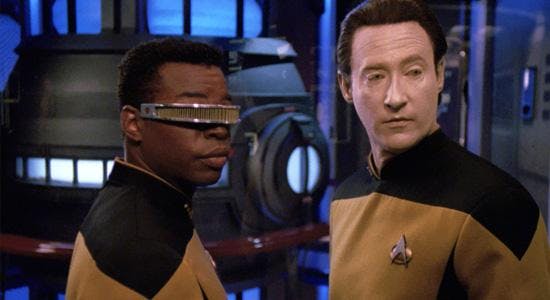
Other actors were considered for the roles we now associate with Patrick, Brent, Marina, etc. How close did Mitch Ryan or Patrick Bauchau come to landing Picard? Reggie Jackson or Wesley Snipes come to Geordi? J.D. Roth as Wesley? Was anybody really close?
Well, the runner up for Picard was an actor named Stephen Macht. He was a lovely, lovely man and a really good actor.
He was on DS9 later.
He was, but the role of Picard was never offered to anyone other than Patrick. Who were the other names you just mentioned for Picard?
Mitch Ryan, Patrick Bauchau…
They were, I would say, in the top half dozen people that we were interested in.
Reggie Jackson, Wesley Snipes for Geordi?
Wesley Snipes, I don't know where the hell that came from. I have no recollection of Wesley Snipes.
All these names, by the way, are in an internal memo from April 13th 1987…
A memo from who to who?
To John Pike from John Ferraro, on Paramount letterhead.
It's very possible someone had thrown Snipes’ name out, but I don't believe we ever read him and I don't believe he was ever considered.
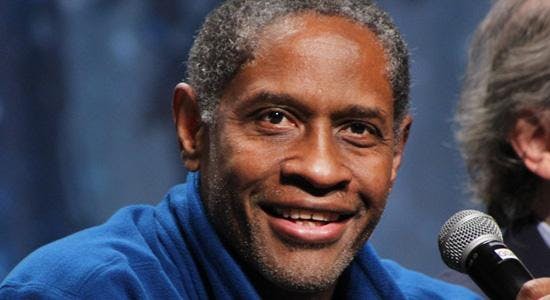
The names under Geordi are Snipes and Jackson, LeVar Burton, Tim Russ, Wesley Snipes, Victor Love, Chip McCallister, Clarence Gilliard Jr, and Kevin Peter Hall.
Tim Russ was definitely one of the top runners-up. On the other hand, LeVar, he was the most famous of all of our actors because of Roots. I’d say that Wil Wheaton was probably the next most-famous because of Stand By Me. LeVar was our first choice. The other names you mentioned were on a list of possibilities that one of my associates… you said John Ferraro, right? John may have thrown the names onto a memo, but I don't recall ever reading those actors. The only one that I recall reading, although we could've read a number of them, was Tim Russ, who I liked very much, but we picked LeVar.
And, for Riker, the memo reads, “Michael O'Gorman seems to be a favorite. He's an atypical choice for the role, however, a good one.”
The only role where we had an actor that was our first choice and we were turned down by the studio was Riker. The actor was Billy Campbell. He came in, and we had him read for the same people, Pike and the other studio executives. They thought this was not a person you’d necessarily follow into battle. They didn't reject him 100%, but they wanted to see others, and our second choice was Jonathan Frakes. Everybody loved him, and that was that.
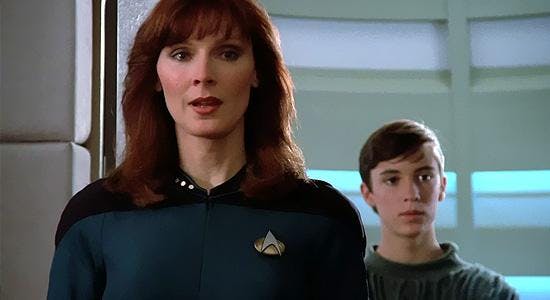
Do you remember J.D. Roth as Wesley?
It's 30 years ago, so I don't have a clue, but I can tell you we had Wil Wheaton come in and read with Gates McFadden. They read a mother-son scene together. Wil had been in a huge movie recently and... We read many, many, many actors, but the only one I remember anybody being excited about for Wesley was Wil.
This is an early memo. April 13, 1987. Wil's not even on the list yet, so he may have come up in the next memo.
Exactly.
That same memo had Riker spelled with a Y. This is totally nitpicking three decades later, but was that a typo or was there ever consideration given to spelling Riker differently?
I don't have a clue.
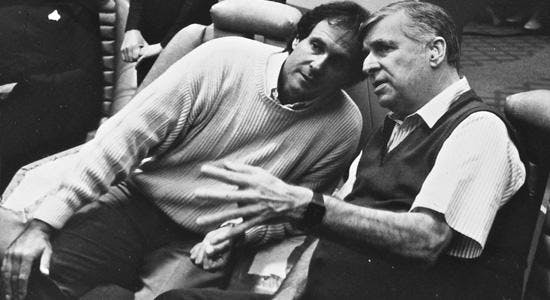
Let’s mix it up. What's the best advice Roddenberry gave you during your time with him?
We spent a lot of time discussing his vision of the 23rd and 24th century, and he felt strongly that the script, stories and production elements all reflect that vision. He was not at all demanding. He’d be demanding to the writers if something was written that didn't work. I remember when we had one, Michael Wagner..., the young writer who we had for a few minutes, who passed away, before Piller. He was going to take over for Maurice Hurley after the second season. I remember he came in with a story where there was a character who had the ability to destroy a planet just by thinking; that's how powerful he was. Far more powerful than Q, far more powerful than anybody that had ever been on Star Trek. Roddenberry got very upset and told Michael you can't have that, and Michael’s attitude was, “Why not?” Gene basically got a bit pissed off and his attitude was like, “Because I said so. Because that doesn't fit into the rules of the Star Trek I created.” Gene would give me directives on things like that, to keep stories from being outlandish or too hokey. I didn't get a whole lot of instructions from him. We worked very closely for two years and I think by the end of that two-year period he was pretty comfortable that I understood what he wanted. But Michael Wagner, he in fact was hired before Michael Piller to be the head writer and he only lasted a month.
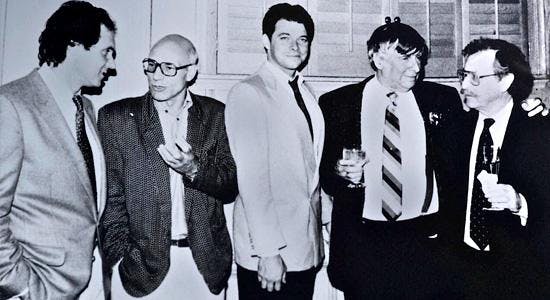
Four episodes, apparently...
He had a lot of problems with Gene during that time, in terms of story ideas and Gene nixing a number of them. He was a very nice guy, got very upset, ended up leaving and then, at a very young age, he passed away. (Wagner died in 1992 at the age of 44).
Visit StarTrek.com again to read part two of our conversation with Rick Berman.

